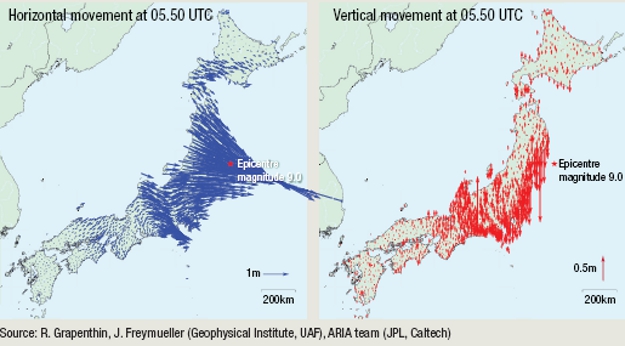 The consequences of Japan’s massive earthquake and tsunami of 11 March were quick to be felt beyond the immediate and enormous humanitarian concerns within the country, making an impact on global markets and economic policies and plans. Radiation emissions from the badly damaged Fukushima nuclear power plant not only complicated Japan’s relief efforts but also caused governments around the world, including China, to take stock of their own nuclear power planning.
The consequences of Japan’s massive earthquake and tsunami of 11 March were quick to be felt beyond the immediate and enormous humanitarian concerns within the country, making an impact on global markets and economic policies and plans. Radiation emissions from the badly damaged Fukushima nuclear power plant not only complicated Japan’s relief efforts but also caused governments around the world, including China, to take stock of their own nuclear power planning.
On the humanitarian front, governments from Asia, America and Europe sent in rescue teams to help Japan’s aid efforts. Russia sent the biggest team of nearly 200 rescuers while China was quick to provide shipments of quilts and tents. Mongolia sent blankets and Thailand provided clothing and supplies of rice. South Korea designated a special team to assist at the stricken nuclear site. In terms of financial aid, the USA was the most generous among foreign governments, with an initial allocation of $35 million.
As Japan had seemed to be emerging from recession when the earthquake struck, there was obvious concern about ripple effects for the global economy. “The economic and financial impact of this earthquake will largely be felt in Japan,” declared Standard Chartered Bank. “The impact elsewhere will depend on how the disaster impacts the prices of international goods, particularly given recent food price and energy inflation. There will also be a focus on financial flows, given Japan’s status as the world’s third-largest economy and one of the biggest private-sector savers.”
Energy markets were in some turmoil. Japan was considered likely to have to increase its imports of conventional fuels – including coal, oil and natural gas – and this buoyed up the prices of some fuels, although the threat of further recession in the country had a simultaneously dampening effect. The ongoing expansion of the nuclear power industry worldwide showed early signs of slowing. Germany seemed on the point of closing down some of its older reactors and China ordered an urgent safety review of its new nuclear plants. China currently has 13 reactors in production and 25 under construction, and has been planning to install 70 new reactors by 2020.
Global prices of consumer electronic goods, including mobile phones and computers, could rise as a result of a shortage of components from Japanese factories, after some major manufacturers suspended operations following the earthquake. Japanese firms currently produce about 40 percent of the world’s electronic components. Major car-makers were also among those affected by power shortages and damage to transport infrastructure.





